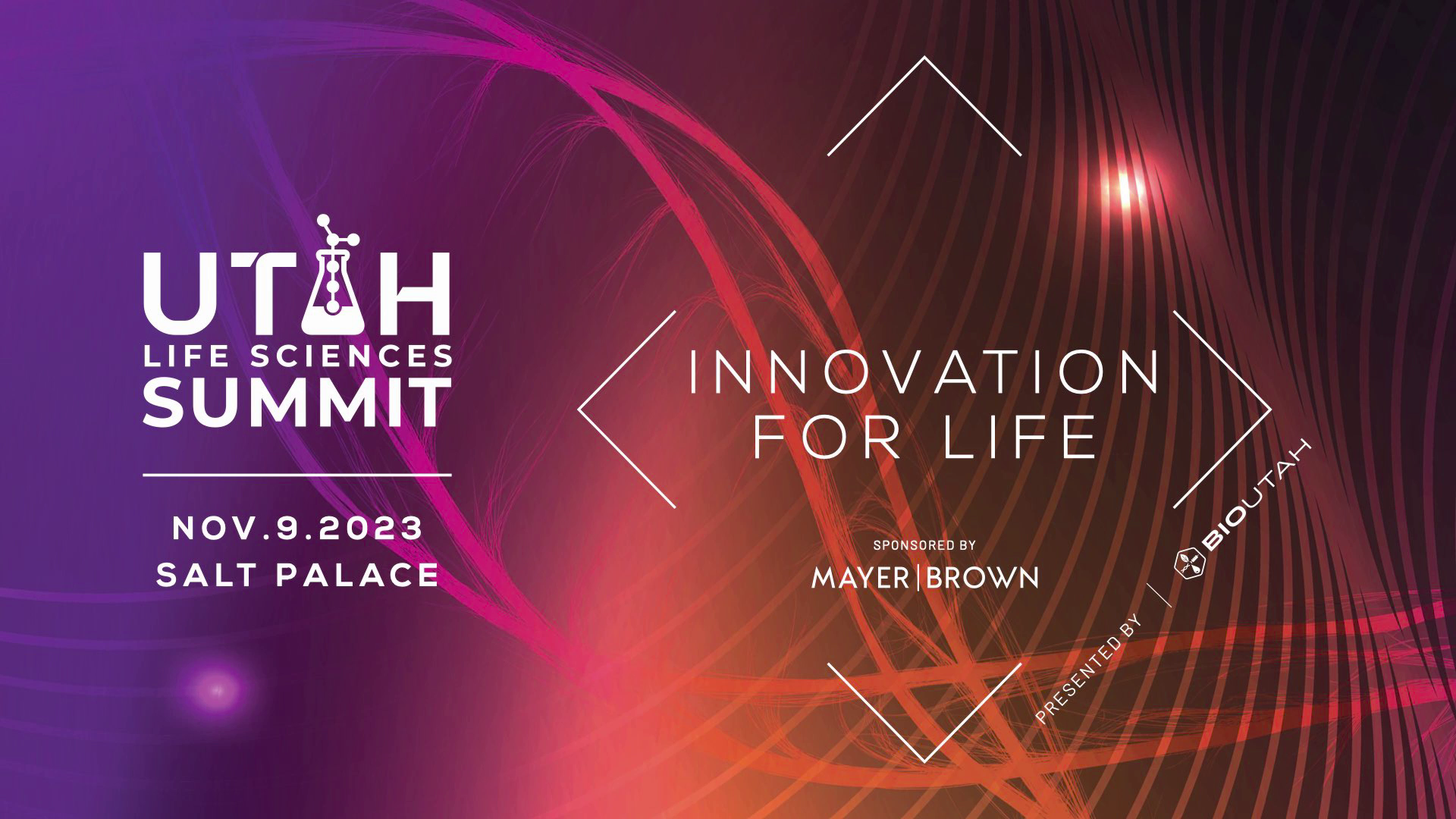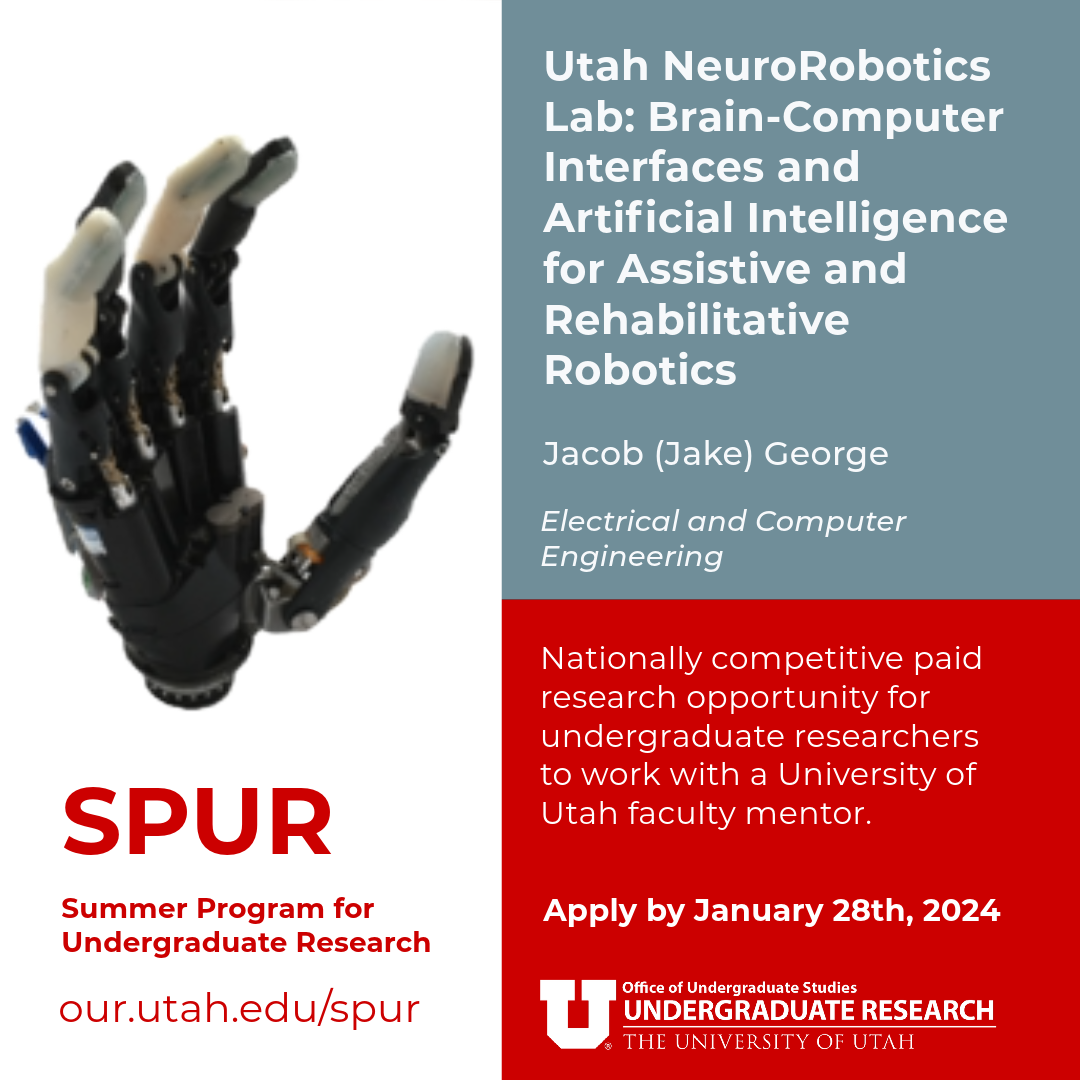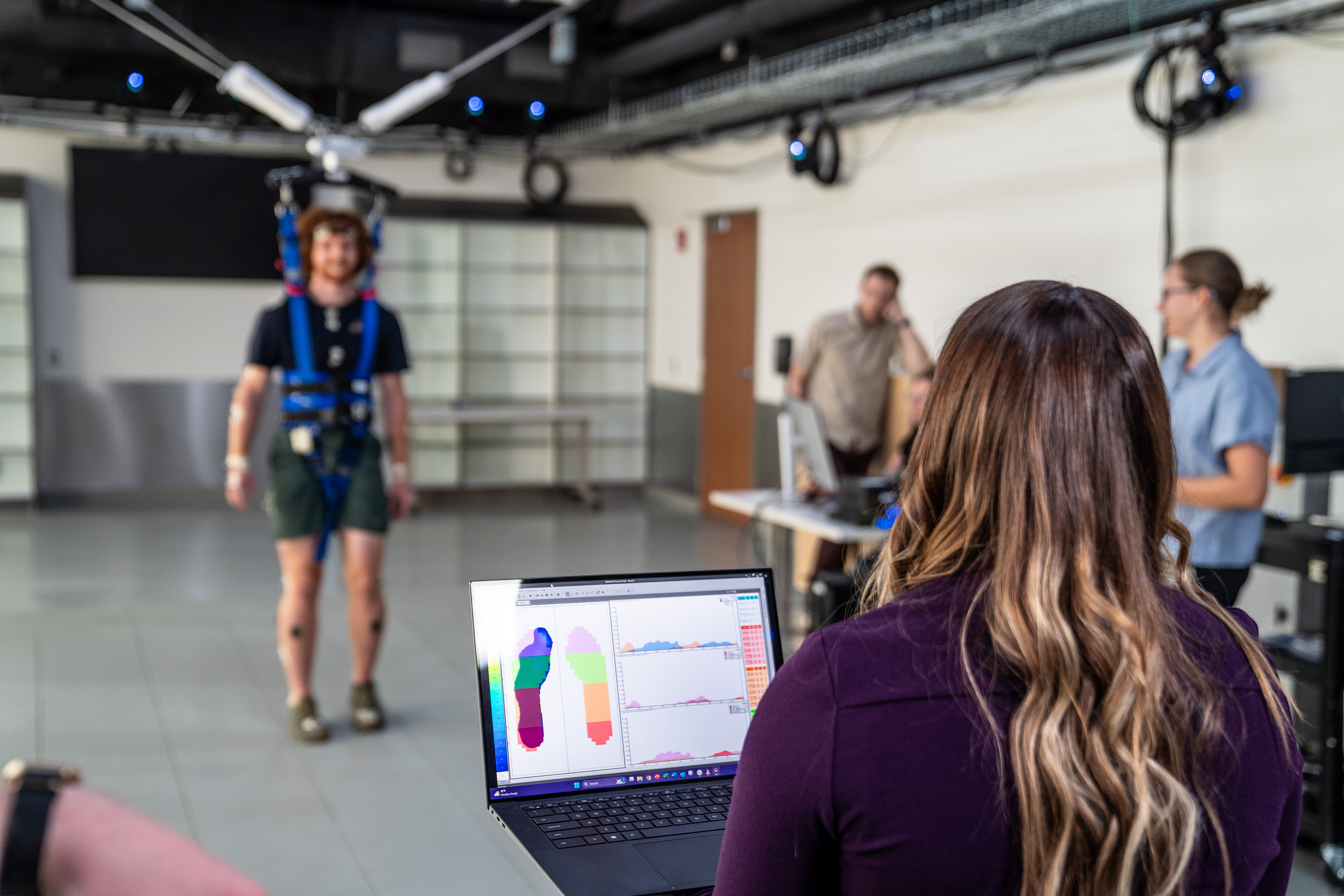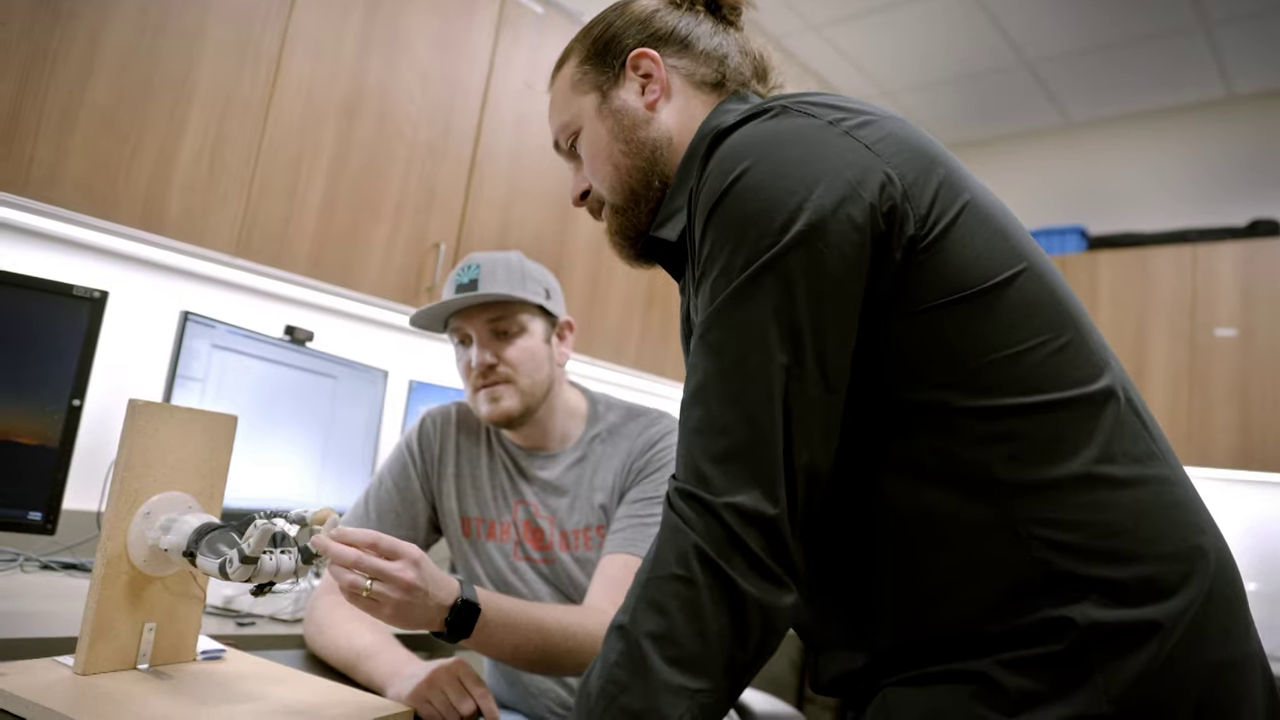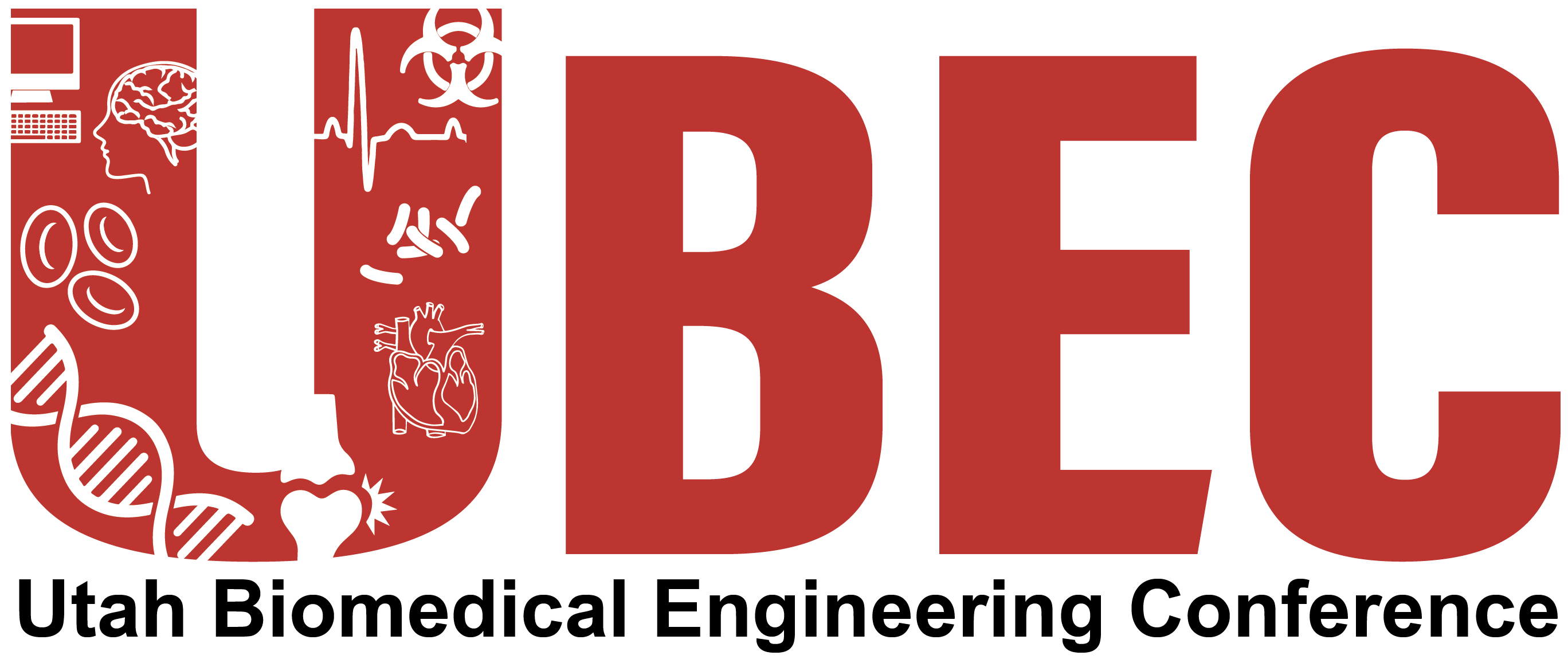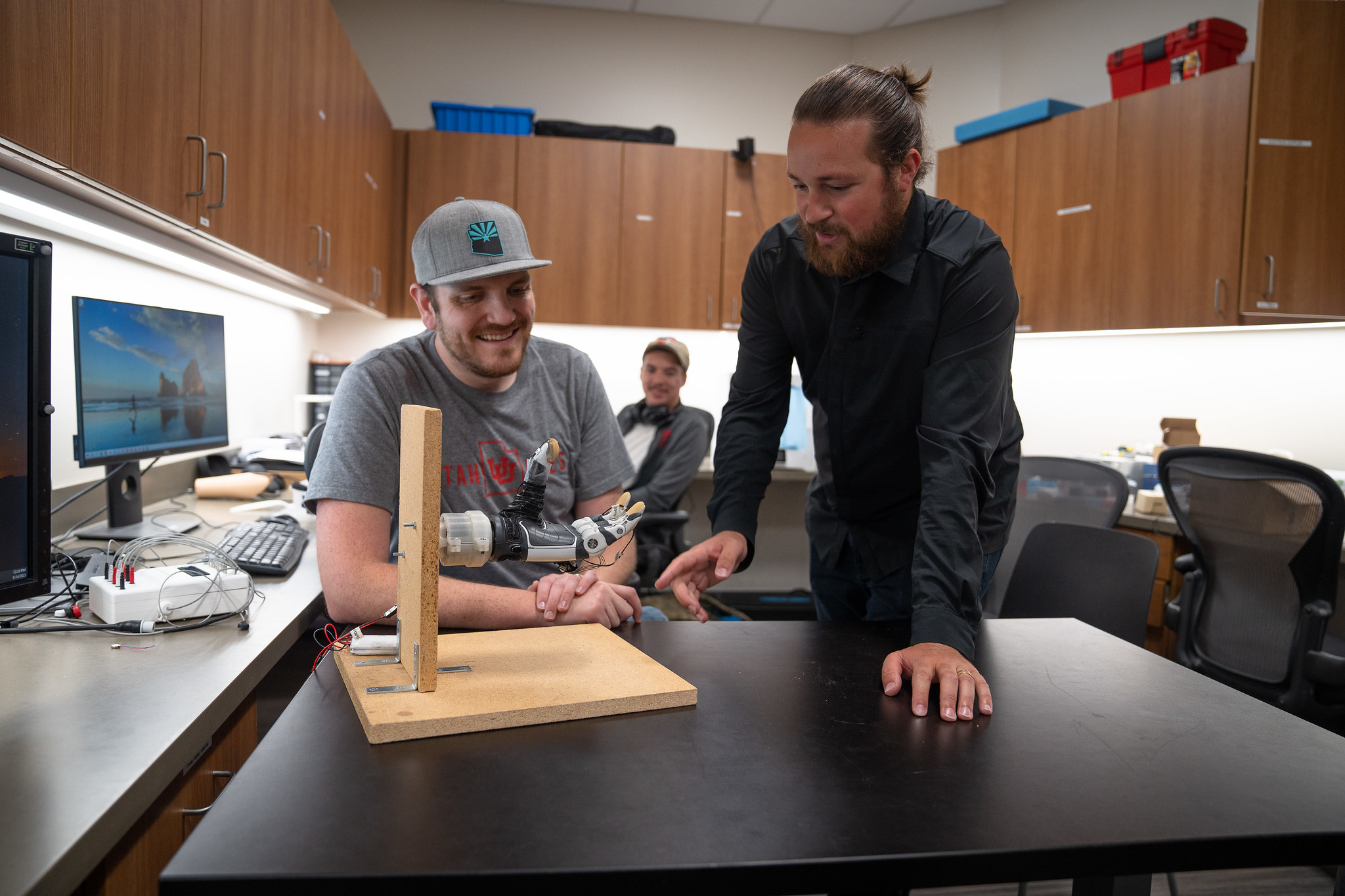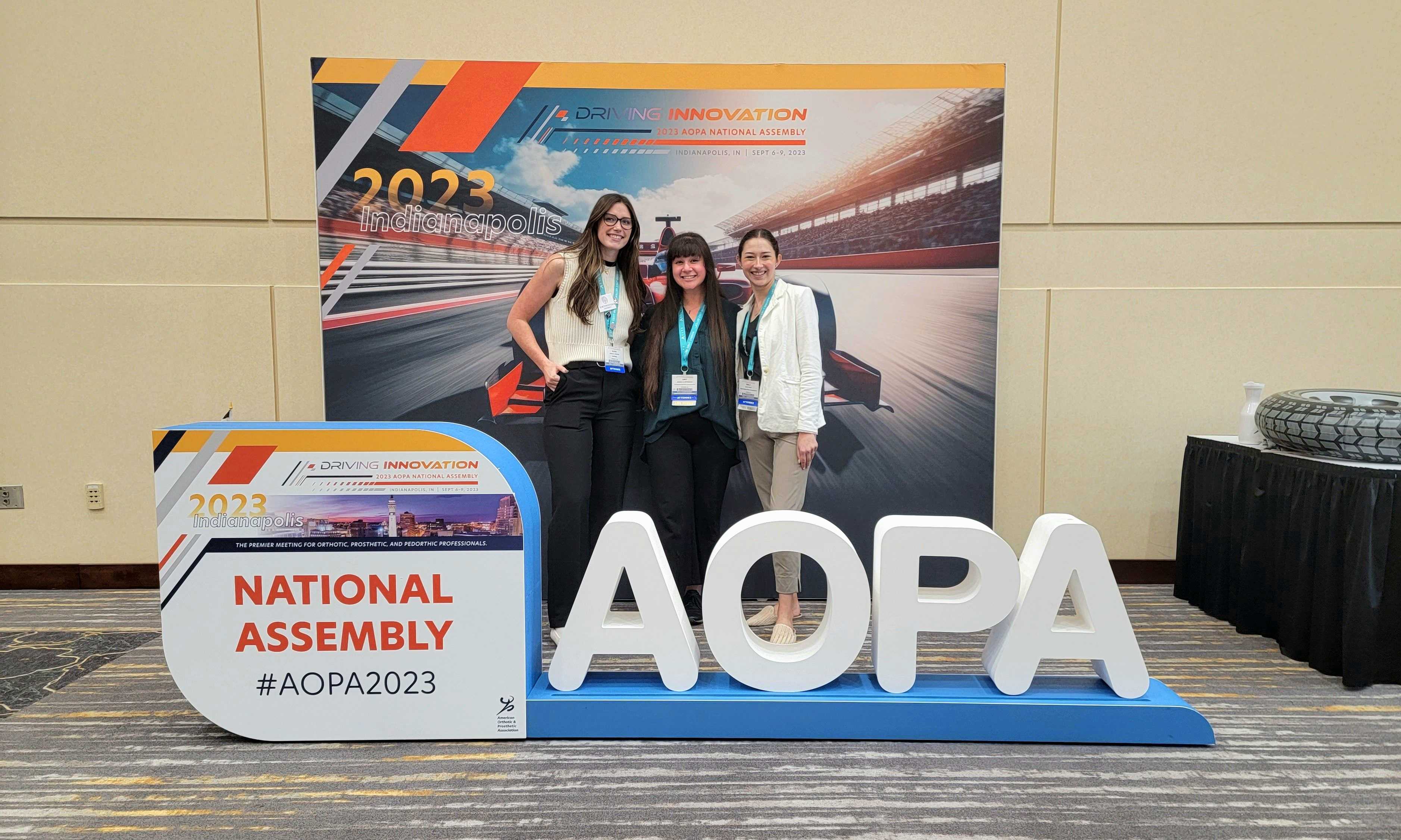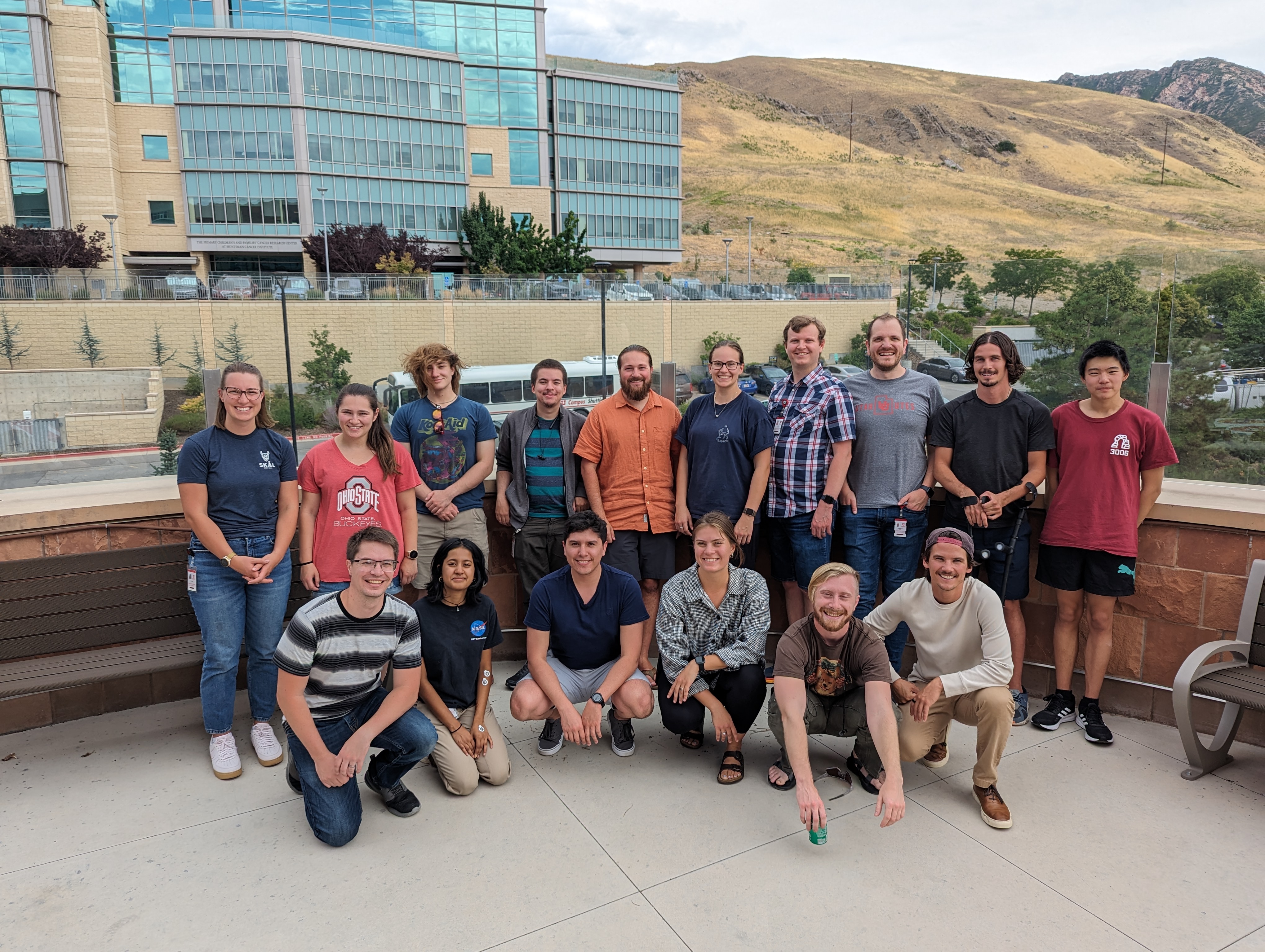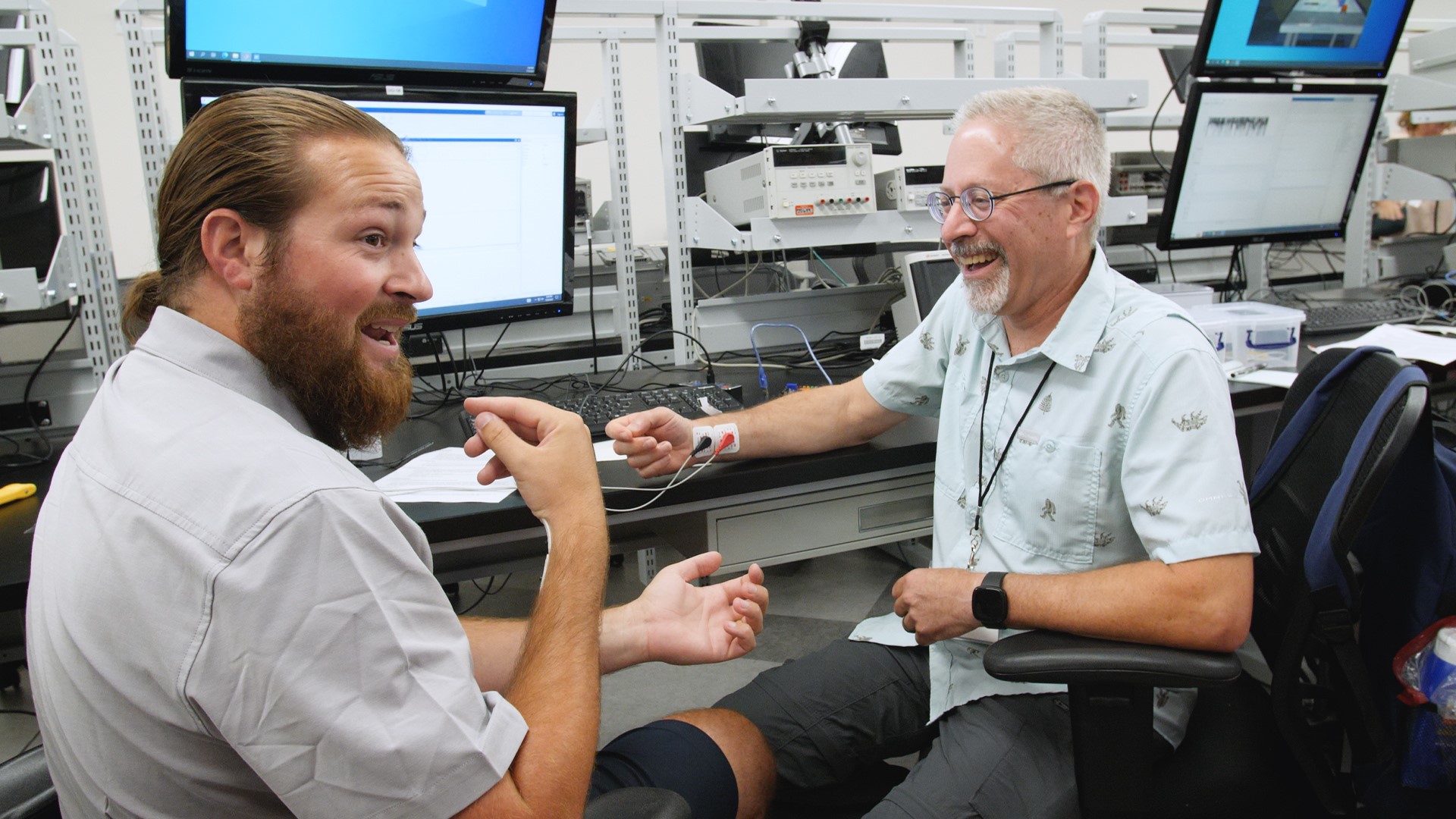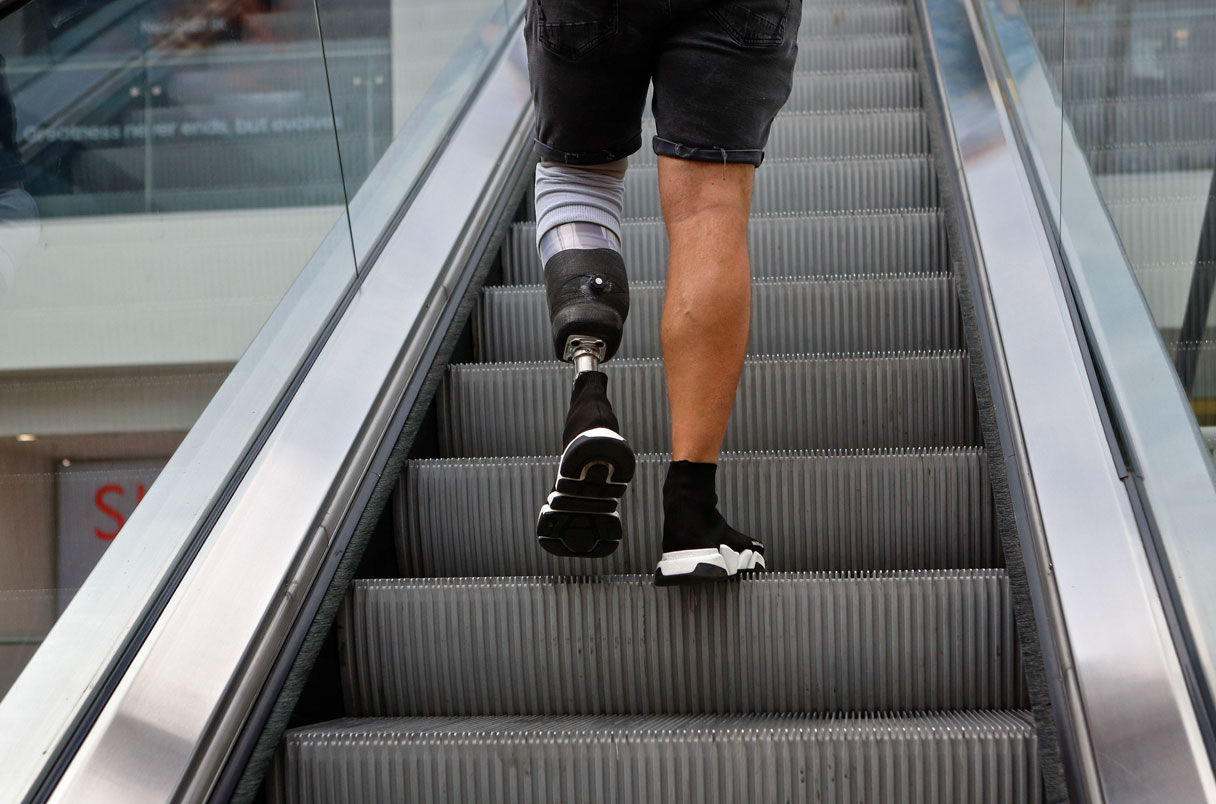The Utah NeuroRobotics Lab is teaming up with Biological Input Output Systems (BIOS) to bring advanced neuroprostheses to the market. In this presentation at the Utah Life Sciences Summit, Dr. George, director of the Utah NeuroRobotics Lab, presents alongside Joshua Miller, CEO of BIOS. Check out their presentation below!
Summer REU Apps Due 1/28!
Grand Opening of the Assistive Rehabilitation Technology Studio
The brand-new Assistive Rehabilitation Technology (ART) Studio in the Craig H. Neilsen Rehabilitation Hospital opened its doors at the beginning of this month. Lab directors Ashley Dalrymple, Jacob George, Russell Butterfield, and Kota Takahashi are excited to share this innovative and revolutionary space with the Physical Medicine and Rehabilitation Department.
NeuroRobotics Lab Featured in University Ad
Presentations at the Utah Biomedical Engineering Conference
Several students presented posters at the Utah Biomedical Engineering Conference on Saturday, September 9th. Presentations included:
Gould Distinguished Lecture on Technology and the Quality of Life: From a sci-fi dream to real-world impact
In 2019, Jacob George, an assistant professor in the University of Utah Department of Electrical and Computer Engineering and the Department of Physical Medicine and Rehabilitation, and fellow researchers at the U made waves with the “LUKE Arm.” Named after the robotic hand given to Luke Skywalker in The Empire Strikes Back, the team’s prosthetic arm has the ability to feel objects by transmitting the appropriate signals to the brain. Not only can the arm feel, but it can be controlled by the user’s thoughts.
Members of the campus and broader community are invited to attend a lecture from George scheduled for Wednesday, Sept. 13 at 11 a.m. in the Gould Auditorium on the first level of the U’s J. Willard Marriott Library.
As the featured speaker for The William R. and Erlyn J. Gould Distinguished Lecture on Technology and the Quality of Life, George will highlight this technology and the advances that have taken place since their breakthrough technology was first announced—including translation into bionic exoskeletons to aid individuals with paralysis and into smartwatches that could allow anyone to seamlessly control smart devices and augmented reality interfaces by thought.
Abby Citterman wins American Orthotic & Prosthetic Association’s Edwin and Kathryn Arbogast Award
Congrats to Abby Citterman for being honored with the best prosthetic abstract at the American Orthotic & Prosthetic Association National Assembly! Her poster is titled Transcutaneous Electrical Nerve Stimulation at the Wrist as a Method to Restore Sensory Feedback for Individuals with Partial Hand Amputation. Sensory feedback is critical for dexterous hand function, but current methods are cumbersome, inhibiting the natural use of the residual hand or prosthesis. TENS at the wrist may constitute a functional solution for evoking distally referred sensations on the phantom digits and restoring intuitive, non-restrictive sensory feedback for individuals with partial hand amputation.

The Edwin and Kathryn Arbogast Award and the Otto and Lucille Becker Award were founded in 2012, made possible by a special endowment by Becker Orthopedic and WillowWood. These awards honor two meritorious scientific papers submitted for presentation as a poster at the AOPA National Assembly, to encourage students and residents to display outstanding posters.
The Edwin and Kathryn Arbogast Award is awarded annually for the best prosthetic abstract submitted by a qualifying student or resident. The main author of each presentation must be a student (baccalaureate or master level), or a resident at a qualified patient care facility. This prestigious honor also comes with $500 cash, free travel and lodging, and complimentary registration for the 2023 American Orthotic & Prosthetic Association National Assembly in Indianapolis, Indiana. Congratulations to Abby on this award!

Farewell Lunch for Manya Murali
On Thursday, August 24th, the lab held a farewell lunch for Manya Murali, an undergraduate in Computer Engineering at University of California, Davis. Manya was awarded a summer fellowship through the SPUR program here at the U, and we all enjoyed having her as a member of the lab the last few months. We are wishing the best of luck to her in the continuation of her studies!







